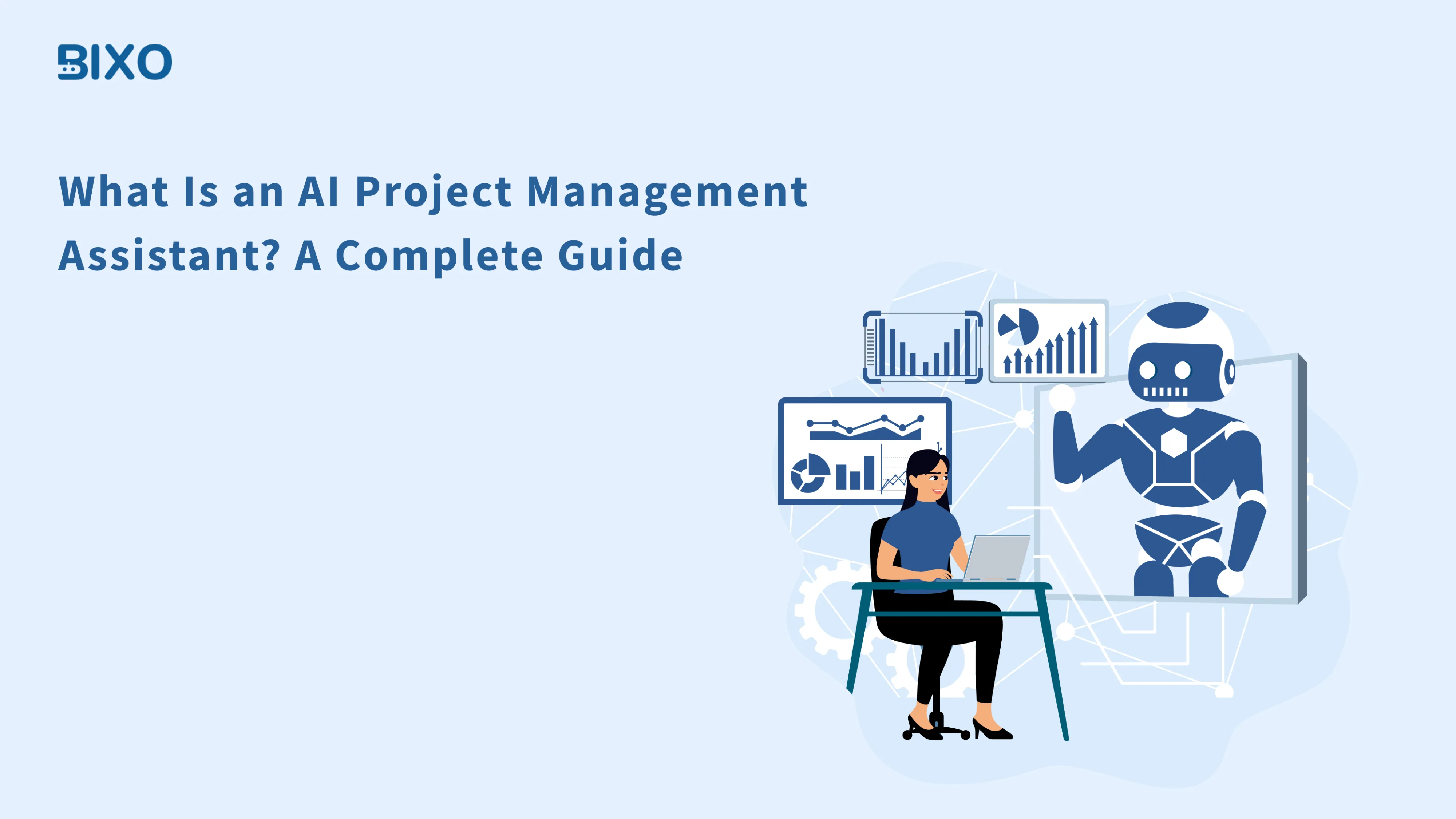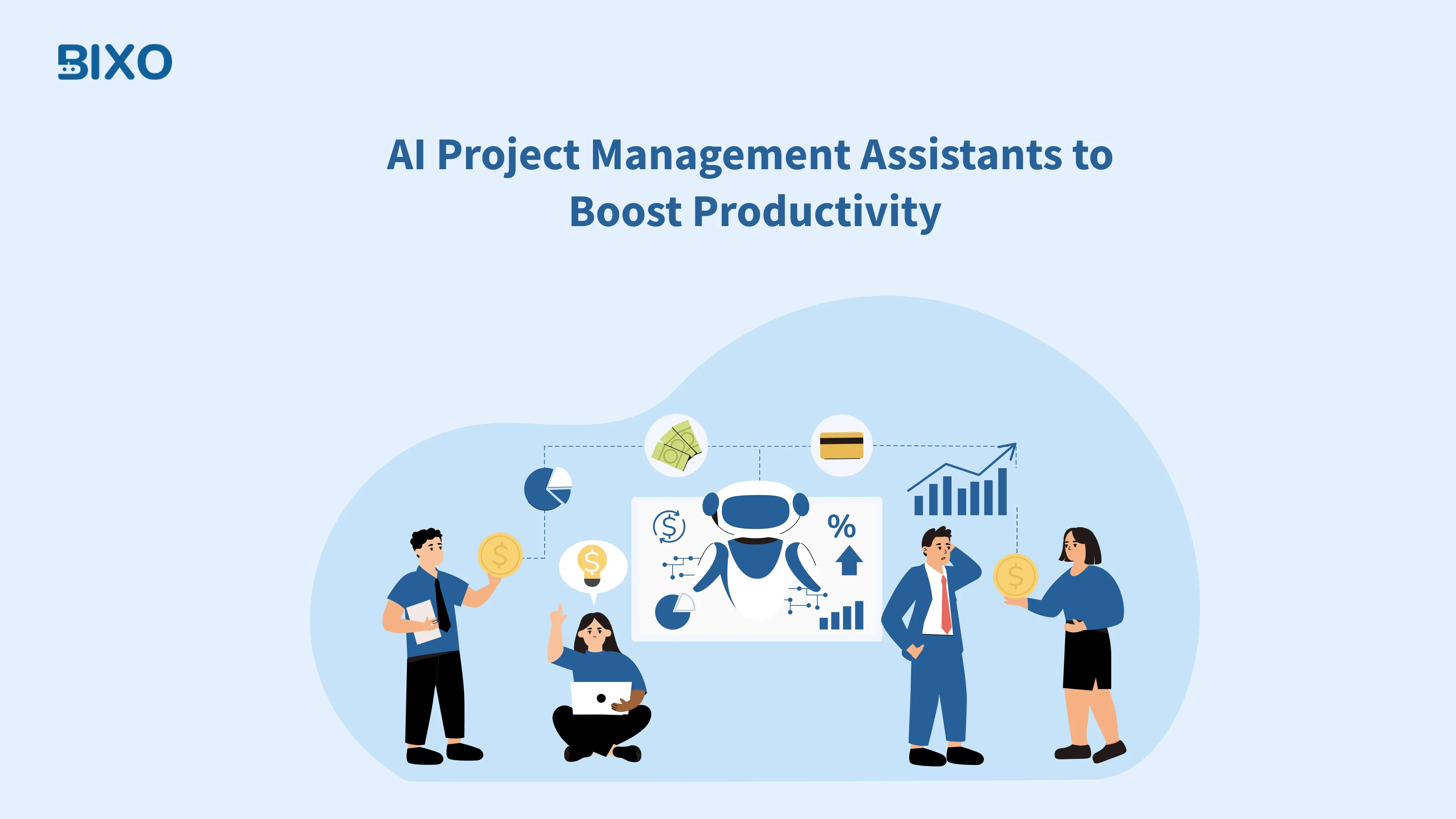
Table of Content
Focus on what matters. BIXO handles the rest!

Being in charge of a team isn’t just about giving directions. It’s about how you lead, communicate, make decisions, and handle pressure. The qualities of a good manager go beyond basic leadership. They shape how your team performs, how problems get solved, and how goals are reached. If you’ve ever wondered what makes a good manager or how to become one that people trust and follow, you’re in the right place. This blog breaks down the traits of a good manager by showing you the mindset, habits, and leadership skills that set the best apart from the rest. Let’s make good management better.
What Makes a Good Manager?
A good manager brings out the best in people without micromanaging . You're not just assigning tasks. You're setting the tone, solving problems, and assisting your team to move forward with clarity and purpose. The qualities of a good manager go beyond meeting deadlines. They show up in how you communicate, handle pressure, earn trust, and help others grow.
What makes a good manager is a mix of leadership skills, emotional intelligence, and a real commitment to the success of your teams. The traits of a good manager include clear thinking, sound judgment, and the ability to adjust when things shift. If you want to be more than a taskmaster and step into the role of a successful manager, it comes down to how you lead and how you connect.
What Are the 16 Qualities of a Good Manager?
A good manager isn’t great because of just one thing. It’s a mix of different qualities. These 16 traits help you lead well, work better with your team, and get things done.

1. Effective Communication
You can’t lead well if your team does not understand exactly what you need from them. Good communication means explaining things clearly so that everyone can understand the goals, what’s expected, and any changes or updates. It’s not just about talking or sending messages. It’s about making sure people get what you mean. You also have to be a good listener. When people feel like you are really listening, they care more about their work. Whether you are giving instructions or having a serious discussion, how you communicate affects everything. Clear communication avoids confusion, builds trust, and helps the whole team stay on track.
2. Leadership Skills
You lead by example. Being a leader is not about having a fancy title. It is all about how you act every day. A good leader encourages people to do their best by earning their trust and showing them the right direction. You help your team handle challenges.
You help your team through problems, set clear goals, and only get involved when things go wrong. Good leadership gives your team so much confidence and helps everyone work better together and grow as a team.
3. Teamwork
You cannot do all the things by yourself. Even good leaders need a team that works well together. Your job is to create a space where people feel comfortable sharing ideas, assisting each other, and solving problems as a team. When you support teamwork, celebrate group success, and show people how their work matters, everyone does better. A strong team begins with your leadership. A strong team starts with the way you lead.
4. Emotional Intelligence
You’re working with human beings, not machines. Emotional intelligence means you can understand how someone feels and respond in a thoughtful way. It assists you in staying calm under pressure, dealing with hard situations, and connecting with others in a genuine, human way. When you observe how people are feeling, adjust how you talk, and show some emotional support, it builds trust and reduces stress. This is one of the most important skills you can have as a manager.
5. Empathy and Support
Your team needs to feel that you really care about them. Empathy is nothing but trying to understand what someone else is going through, especially when things are hard. Being supportive can be as simple as giving your time to someone when they need it or helping out when they are stuck. People want to work for someone who sees them as real people, not just workers. When you show you care, your team feels more motivated and sticks with you.
6. Trustworthiness
If your team does not trust you, things fall apart. Being trustworthy means you keep your word, tell the truth even when it’s hard, and keep things private that are confidential. It also means you are fair, with no picking favourites and no hidden plans. When your team knows they can rely on you, they are more open, more responsible, and more likely to stay. Trust creates a work environment where good things actually get done.
7. Decision-Making Ability
You will often have to make hard choices. Maybe it is about hiring someone, setting a budget, or solving a team issue. What matters is that you make smart decisions at the right time. Being good at decision-making doesn’t mean you’ll always get it right. It means carefully considering your options, asking others for advice, and using your experience to pick the best choice. It means you think things through, ask for input, and use your experience to choose what makes the most sense. And if you mess up, you take responsibility. That kind of honesty builds trust and helps things keep moving.
8. Delegation Skills
You cannot manage everything on your own, and you don’t need to. Delegation means trusting your team to take on the right tasks so you can focus on the main stuff. It is not just about giving work to others. It is about choosing the right person for the job and making sure they have skills that they need to do it well. When you task delegate properly, your team grows, stress goes down, and you get more time to lead.
9. Accountability
You are in charge of your actions and your team’s results. Being accountable is nothing but taking responsibility, whether things go well or not. If something goes wrong, you don’t blame others. You step up, find out what happened, and fix it. It also means expecting your team to follow through and do their part. When you lead with team accountability, it sets the tone for everyone to do the same.
10. Problem-Solving
Problems come up all the time. What really important is how you deal with them. A good manager doesn’t panic or ignore tough situations. You face them directly. You look at what is going on, get the facts, think through the options, and act fast. Whether it’s a missed deadline, a tech issue, or a team disagreement, your calm and clear thinking keeps things on track. It also shows your team how to deal with problems the right way.
11. Adaptability
Things don’t always go as planned. Deadlines move, clients change their minds, and people leave or join the team. If you cannot adjust, you will fall behind. Being adaptable means staying calm when plans change, making quick adjustments, and guiding your team through it. It is all about not sticking to the old way of doing things and being open to better ideas. When you stay flexible, your team stays steady even when things feel uncertain.
12. Time Management & Organisation
Your time matters, and the time your team spends matters too. Managing it well means knowing what’s most important, planning ahead, and keeping things in order. It’s not just about staying busy. It’s about getting the right work done. When you meet deadlines and help your team stay focused, everything runs more smoothly. Good managers notice the small things, like staying organised and making sure nothing gets missed.
13. Strategic Thinking & Vision
You are not just dealing with things as they come. You are thinking ahead. Strategic planning means you understand the overall plan bigger picture and help your team move toward long-term goals. It’s about knowing where you are going, why it matters, and what steps to take. When your vision is clear and you explain it well, your team works with purpose. They know what they’re doing and why it’s important.
14. Confidence
People notice your attitude. When you speak clearly, make decisions without hesitation, and stand by what you say, it makes others feel steady and sure. Being confident doesn’t mean acting like you know everything. It means understanding what you’re good at, learning from mistakes, and showing up with a clear mind. When your team sees you trust the plan, they’re more likely to trust it too.
15. Optimism
Being positive really helps, especially when things are hard. Optimism means you believe problems can be fixed, and you keep looking for answers. It doesn’t mean pretending everything’s fine. It means staying hopeful and keeping your energy up. When you stay positive, your team picks up on it. You help them stay strong, notice the little wins, and keep moving forward.
16. Commitment to Development
Your job isn’t just to manage tasks. It is to help people grow. That includes working on your own growth too. A good manager takes time to learn, gives honest feedback, and helps others build their skills. You support learning, push your team to take on new challenges, and talk about future goals. When people see that you care about their progress, they stay more motivated, loyal, and do better work.
How BIXO Supports Managers to Lead More Effectively?
Being a good manager isn’t just about having leadership skills. You also need time, focus, and consistency to really support your team. But most of your time goes into chasing updates, checking progress, and following up on tasks. That’s where BIXO helps. It acts like an AI assistant that checks in with your team, gathers updates, spots problems early, and keeps work moving so you don’t have to micromanage.
You don’t need to sit through long status meetings or send lots of reminders. BIXO gives you real-time updates, smart alerts, and simple summaries. It helps you handle bigger teams with less stress, even if they’re working remotely. While BIXO takes care of the daily communication, you can focus on what really matters, like building trust, setting goals, and leading with clarity.

1. Set the Purpose and Boundaries
First, be clear about why you need a risk management plan and what it should include. Is it for one project, your daily operations, or the whole business? Setting clear boundaries keeps the plan focused and avoids confusion. When you know the exact purpose, it’s easier to connect your risk strategies with your main goals.
2. Identify Potential Risks
Take a close look at the areas where things might go wrong. This could mean financial losses, day-to-day operational issues, compliance problems, or even outside threats. Talk it through with your team, revisit challenges from past projects, and pay attention to what’s happening in your industry. The idea is simple. Spot risks early so you can plan ahead and keep them from turning into bigger problems.
3. Assess and Prioritise Risks
Not every risk is the same. Some may not happen often but can cause big problems, while others are minor but more likely to occur. Using a simple chart can help you see both the chances and the impact. This way, you focus your time and effort on the risks that really matter.
4. Develop Response Strategies
After you’ve ranked the risks, plan how to handle them. Some can be avoided by fixing processes or adding protections. Others may need backup plans if they happen. The goal is to be ready with clear steps so you don’t panic when problems come up.
5. Assign Roles and Responsibilities
A risk management plan only works if everyone knows their job. Give each important risk to a person who will watch it and take action if needed. When responsibilities are clear, there’s no confusion during problems, and decisions get made faster.
6. Write the Plan Down Clearly
Put the whole risk plan on paper in a simple, organised way. List the risks, which ones matter most, how you plan to handle them, and who is responsible for each. This written plan helps everyone stay on the same page and know what to do if problems come up.
7. Review and Update Regularly
Risks change over time. As your project moves forward, new risks can come up and old ones may no longer matter. Check your plan regularly, see if your strategies are working, and make improvements when needed. This way, your plan stays useful and ready for any new challenges. Risks change over time. As your project moves forward, new risks can come up and old ones may no longer matter. Check your plan regularly, see if your strategies are working, and make improvements when needed. This way, your plan stays useful and ready for any new challenges.
Conclusion
Knowing the qualities of a good manager isn’t just something nice to read about. It’s what helps you build trust, lead your team well, and bring out their best. Whether you’re getting better at leading, talking clearly, or handing off work to the right people, every small improvement matters. The traits of a good manager show up in everyday actions, not only in major decisions. If you want to be a successful manager, focus on being clear, calm, and steady. Keep building these good habits, and your team will do better and work more confidently because of you.
FAQs
There isn’t just one, but clear communication is really important. If your team doesn’t understand you, things won’t work well. Good communication builds trust, avoids mistakes, and helps everyone stay on the same page.
Yes, you can learn to be a good manager. Skills like understanding people, making decisions, and leading others get better with practice. You don’t have to be perfect, just keep learning and care about your team.
Start small. Pick one quality to work on, like listening better or managing time. Practice it daily. Over time, these small steps build into stronger habits that make you a better manager.
BIXO talks to your team, collects updates, and tells you if something’s not right. It saves you from always following up with everyone and helps you lead without being on their back all the time.
Be honest, do what you say, and listen to people. Your team will trust you when they see you’re fair and clear. Trust takes time, but it builds when you do the right thing every day.
Get a demo of BIXO
Recommended Blogs

Critical Chain Project Management: Definition, Benefits & Tips
Learn about critical chain project management, how it differs from critical path, and how it helps teams to improve scheduling and resources.
 Jahnavi Chintakrindhi |
Jahnavi Chintakrindhi |
 Oct 17, 2025
Oct 17, 2025


